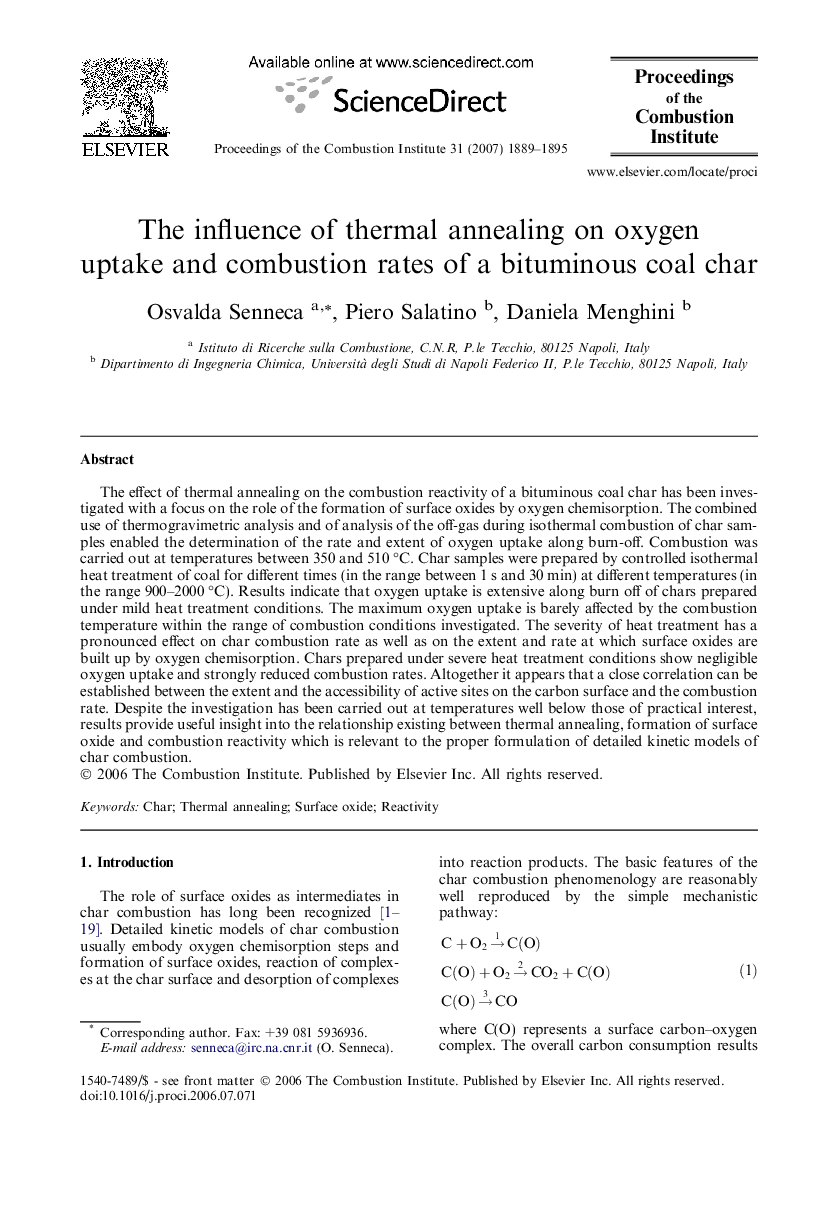| Article ID | Journal | Published Year | Pages | File Type |
|---|---|---|---|---|
| 241231 | Proceedings of the Combustion Institute | 2007 | 7 Pages |
The effect of thermal annealing on the combustion reactivity of a bituminous coal char has been investigated with a focus on the role of the formation of surface oxides by oxygen chemisorption. The combined use of thermogravimetric analysis and of analysis of the off-gas during isothermal combustion of char samples enabled the determination of the rate and extent of oxygen uptake along burn-off. Combustion was carried out at temperatures between 350 and 510 °C. Char samples were prepared by controlled isothermal heat treatment of coal for different times (in the range between 1 s and 30 min) at different temperatures (in the range 900–2000 °C). Results indicate that oxygen uptake is extensive along burn off of chars prepared under mild heat treatment conditions. The maximum oxygen uptake is barely affected by the combustion temperature within the range of combustion conditions investigated. The severity of heat treatment has a pronounced effect on char combustion rate as well as on the extent and rate at which surface oxides are built up by oxygen chemisorption. Chars prepared under severe heat treatment conditions show negligible oxygen uptake and strongly reduced combustion rates. Altogether it appears that a close correlation can be established between the extent and the accessibility of active sites on the carbon surface and the combustion rate. Despite the investigation has been carried out at temperatures well below those of practical interest, results provide useful insight into the relationship existing between thermal annealing, formation of surface oxide and combustion reactivity which is relevant to the proper formulation of detailed kinetic models of char combustion.
